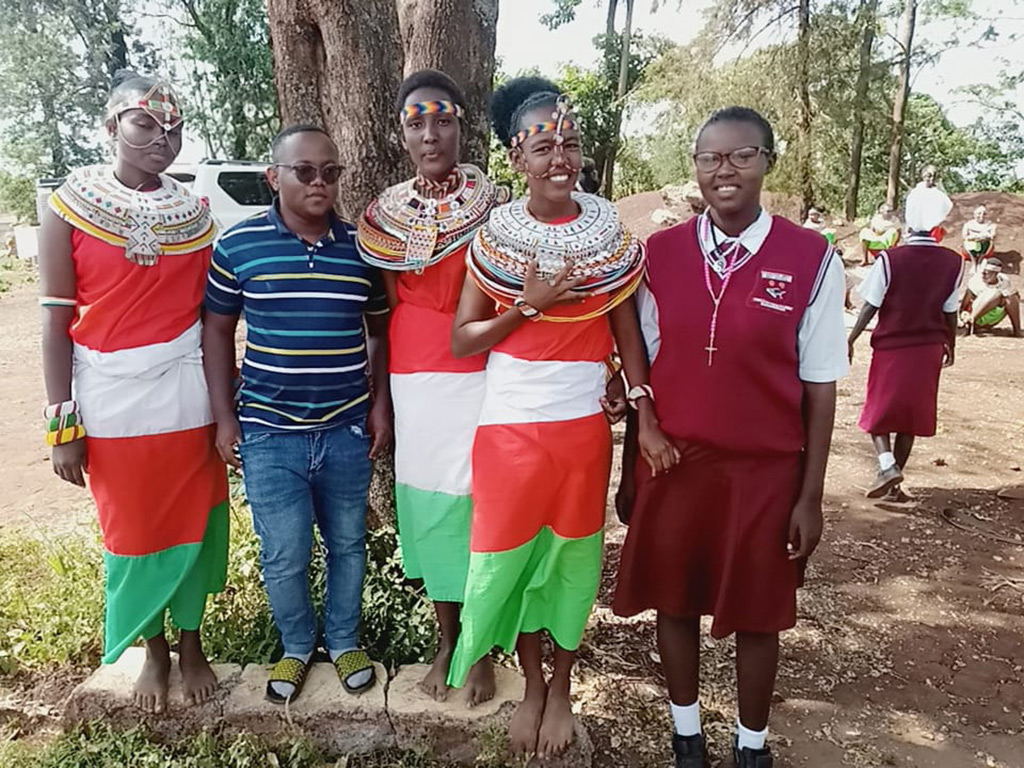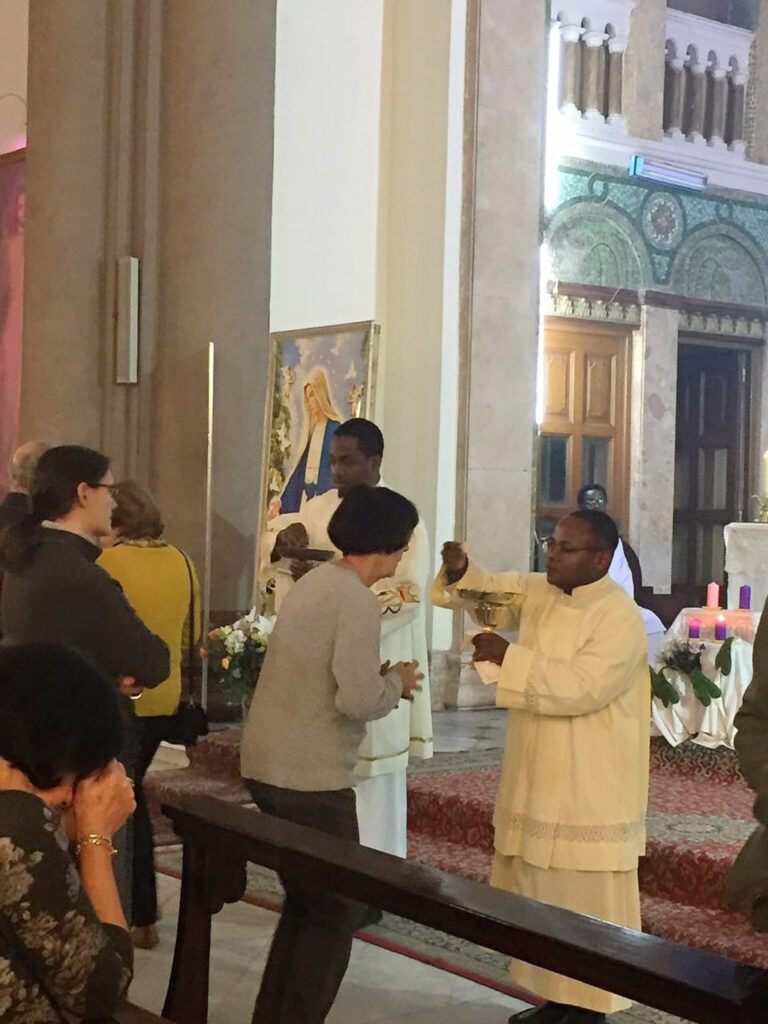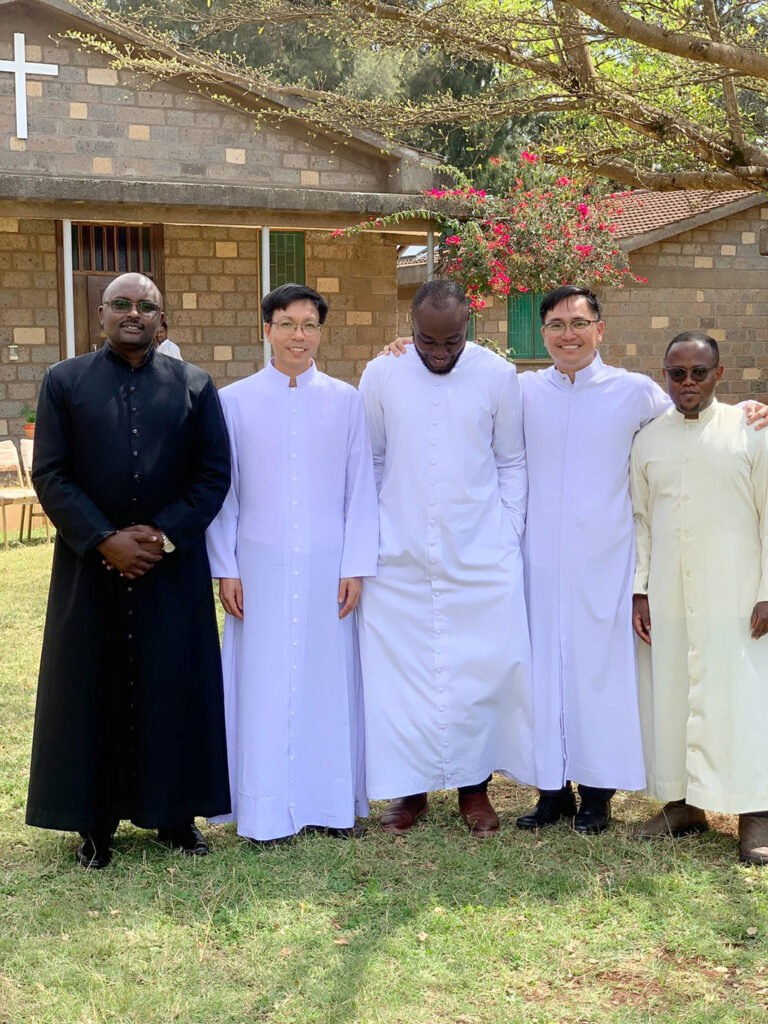My Vocational Journey to Religious Life and the Priesthood
By Fiston Muhiwa, mccj
My name is Fiston Muhiwa, and I come from the Democratic Republic of the Congo. I would like to share the story of my vocational journey toward religious life and priesthood, my path in the vineyard of the Lord.
It is often said that everything in life happens for a reason. My vocation, too, is rooted in purpose. It is deeply connected to the environment in which I was raised. I come from a devout Catholic family, and this spiritual foundation played a significant role in shaping my decision to live my Christian faith in a radical and committed way as a religious person. I am from the Diocese of Butembo-Beni, a large and vibrant Catholic community located in Eastern DRC, encompassing the major towns of Butembo and Beni as well as several rural territories. This strong Catholic presence naturally influenced my faith and worldview.
Motivations Behind My Call to the Priesthood

In my region, it has become almost a cultural norm that each Catholic family has at least one priest or religious. In my own family, however, there were none. This absence inspired some of my relatives to encourage me to consider a vocation, especially since I showed great interest in Church life from a young age. I admired the lives of priests and religious men and women, and I began to feel a strong personal desire to follow in their footsteps.
However, my vocation goes beyond admiration. I have been deeply moved and affected by the suffering of the people in Eastern DRC a region plagued by conflict and violence for decades. Since before I was born, innocent people have been victims of war, forced to flee their homes, subjected to slavery, abuse, and inhumane treatment by armed groups. Witnessing and living amid this suffering filled me with a deep sense of bitterness and led me to question the cruelty that exists in the human heart: How can a person mistreat another human being so severely?
This experience awakened in me a profound sensitivity to human suffering and a strong desire to bring justice, peace, and hope to those in despair. These concerns have become central to my life and are reflected in my academic and spiritual formation.
Why I Chose the Comboni Missionaries

Through my growing involvement in the Church, I came to understand that only Jesus Christ can truly transform the human heart. In Him, I found a source of hope and healing for a broken world. I felt called to become an agent of this hope and transformation one who helps restore what has been damaged in humanity. This conviction inspired my philosophical thesis: “The Question of the Future of Man in the Line of Teilhard de Chardin: A Comprehensive Reading of the Becoming of Man.”
My desire to see a renewed and hope-filled humanity also led me to choose the topic of my theological baccalaureate thesis: “Justice Tempered with Mercy: A Proposed Solution to Conflict in Eastern DRC.” These academic works were not just exercises in scholarship, but expressions of the burning desire within me to contribute to peace and reconciliation in my country and beyond.
I chose to become a Comboni Missionary after encountering Comboni priests and sisters who introduced me to the life and vision of Saint Daniel Comboni. His commitment to the poor and marginalized, his belief in the dignity of all people regardless of race, status, or background deeply inspired me. Through reading his life and mission, I felt called to join his spiritual family, dedicated to bringing Jesus Christ to the world by sowing hope, peace, love, and transformation in the hearts of those most in need.
Stages of My Formation

My formation journey began in 2013, when I entered the pre-postulancy (in DR Congo) a time of observation and discernment, helping me transition from high school into the academic and communal life of a religious formation house.
The postulancy (in DR Congo) was a period of deep personal growth. It challenged me to confront my personality and past experiences, to grow in self-awareness, and to learn how to serve both myself and others. It also introduced me to the world of philosophical studies, marking my first step into the intellectual preparation necessary for service in the Church.
The novitiate (in Benin-Togo) was a sacred time of spiritual deepening and reconciliation with God and myself. It was during this stage that I fully embraced the Comboni charism and the essence of consecrated life. At the end of the novitiate, I made my first profession of vows chastity, poverty, and obedience which I renew annually until perpetual vows.
In the scholasticate (Kenya), I encountered God profoundly through theological studies. I immersed myself in Scripture the narrative of salvation and God’s revelation to humanity. I came to understand more deeply the ultimate destiny of the human person, summarized beautifully by Saint Augustine: “You have made us for Yourself, and our heart is restless until it rests in You” (Confessions, 1.1.1). My hope to see humanity transformed and restored grew stronger during this time.
I am currently in the final stage of my formation, called missionary service (in Egypt). I am learning the Arabic language and preparing myself for hands-on missionary work, eager to serve those in need and share the message of Christ in a concrete and transformative way.
Conclusion
I firmly believe that God did not create us to live in frustration or despair. He created us to live in happiness, holiness, and harmony with one another and with creation. I see this missionary path as the best way for me to spread that joy and healing especially to the poorest and most abandoned, to those who are losing hope. Through my vocation, I aspire to be a bearer of light, love, and peace to a suffering world.
